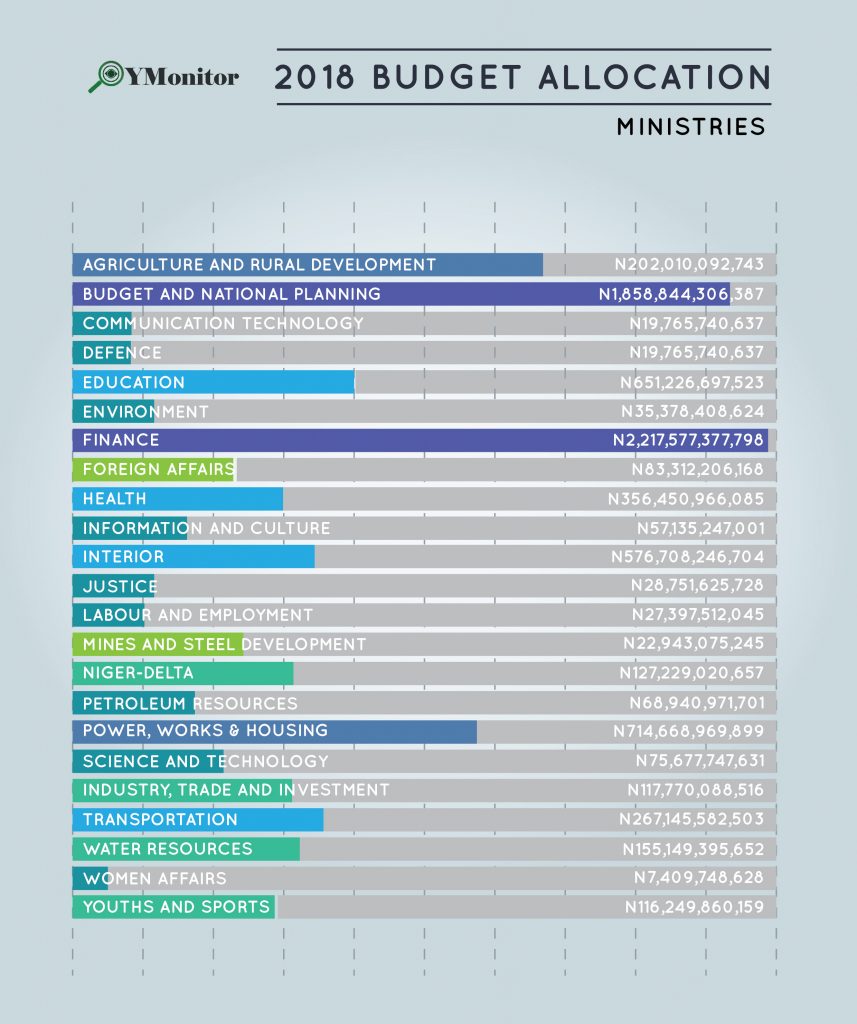by Usman Alabi
Analysis
It is important that citizens know the details of the National budget, especially in simple easy to read info graphics. This not only informs the citizens but also stimulates them towards taking action based on the information they have.
The 2018 budget is the highest in the history of Nigeria at N9.12trn. Yet the capital expenditure is just about 30 percent of the the entire budget, which still points to the fact that the cost of governance still remains excessively high.

Source: Budget Office Of the Federation
A look through the above info-graphics also show that the country is spending more on security, Ministry of Power, Works and Housing; these two ministries are perennial culprits, both Ministries in the previous years also had one of the highest budgetary allocations. Yet this annual increased budget spending has little or no impact on the lives of the people. Power has not fared better, with the power grid collapsing at various times in the course of the year, same applies to road infrastructure. In terms of security, the ministry of defence has not in anyway justified her humongous allocation as the security of lives and properties is completely non existent.
The education sector is key to every country that is deliberate and serious about development, but the budgetary allocation to the sector cannot leapfrog it to the desired state.
Overall, the annual budget does not in anyway show that the present administration has a comprehensive agenda of development than the usual tradition that has been before now. The budget does not show that the government has a priority that is evidence based.
One would have expected that at the inception of this administration, an economic plan contingent upon a well debated agenda would be initiated, which then becomes visible in the pattern of budgetary allocations. This economic plan itself would be expected to redefine budget making and implementation, but in the absence of this, what we have is the usual continuum.
It was an avoidable recession at the beginning of this administration and now we are ending this tenure as the country with the highest number of poor people, with about 87 million people living in extreme poverty according to Brookings.
Source: Budget office of the Federation
There is an urgent need to fashion out a structure of government that is less expensive as well as rework our budgeting system. For this to happen, there need to be more thinking in government than we currently have.